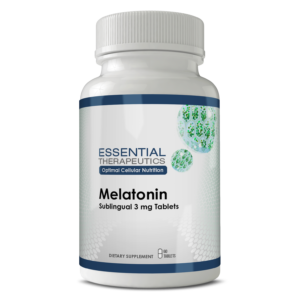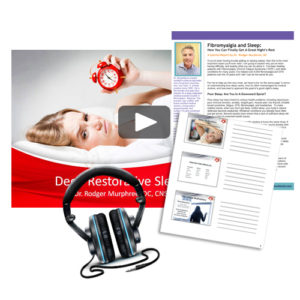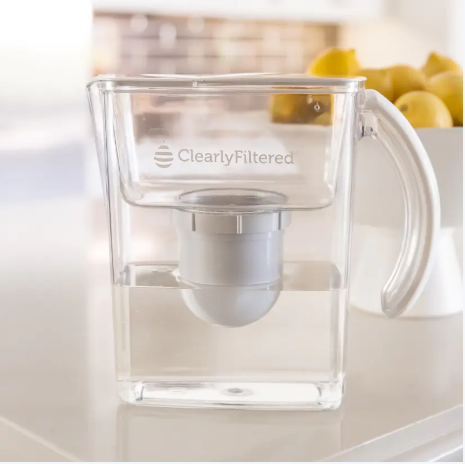Sleep Disorders
 Poor sleep has been linked to a number of health conditions including mood disorders, fibromyalgia, obesity, chronic fatigue, headaches, increased pain, and reduced mental acuity. Between 50 million and 70 million Americans struggle with chronic sleep disorders, which cost the nation hundreds of billions of dollars every year in medical expenses, lost productivity, accidents, and other costs. There are more than 70 different sleep disorders that are generally classified into one of three categories; lack of sleep (insomnia), disturbed sleep (obstructive sleep apnea), and excessive sleep (narcolepsy).
Poor sleep has been linked to a number of health conditions including mood disorders, fibromyalgia, obesity, chronic fatigue, headaches, increased pain, and reduced mental acuity. Between 50 million and 70 million Americans struggle with chronic sleep disorders, which cost the nation hundreds of billions of dollars every year in medical expenses, lost productivity, accidents, and other costs. There are more than 70 different sleep disorders that are generally classified into one of three categories; lack of sleep (insomnia), disturbed sleep (obstructive sleep apnea), and excessive sleep (narcolepsy).
The amount of sleep that a person needs to function normally depends on several factors (e.g., age). Infants sleep most of the day (about 16 hours); teenagers usually need about 9 hours a day; and adults need an average of 7 to 8 hours a day. Although elderly adults require about as much sleep as young adults, they usually sleep for shorter periods and spend less time in deep stages of sleep. About 50% of adults over the age of 65 have some type of sleep disorder, although it is not clear whether this is a normal part of aging or a result of medications that older people commonly use.
Sleep Cycles
There are two types of sleep. The first type of sleep is known as rapid eye movement or REM. The second is non-REM sleep. Non-REM sleep is further divided into four stages. During the REM cycle the eyes, while still closed, rapidly move back and forth. This is where dreaming takes place. The deeper Non- REM stage of sleep is crucial for over-all well being. Stages 1 and 2 of Non-REM sleep while important in maintaining the correct sleep cycle, don’t provide the restorative powers as compared to stages 3 and 4.
The Non-REM sleep cycle begins soon after we start to fall asleep. The first two stages of non-REM have a faster brain wave pattern (as measured with electroencephalogram or EEG) and are considered the lighter stages of sleep. As the brain activity begins to slow down we enter into stages 3 and 4 of non-REM sleep. This usually occurs one and a half hours after falling a sleep. The non-REM cycle is then interrupted by ten minutes of REM sleep. REM sleep elicits a flurry of brain activity. These cycles occur 5 to 6 times a night. The time spent in REM continues to grow and may last up to an hour in the last cycle of sleep. We dream during the REM cycle. It’s our dream cycle.
Traditional Treatments
Sleep disorders are usually treated with one of the following medications listed below. Some of these medications can be a great help in promoting deep restorative.
Sleep Medications that don’t Promote Deep Restorative Sleep:
• Gabitril (tiagabine) and Neurontin (abapentin).
• Zanaflex (tizanidine).
• Xanax (alprazolam), Ativan (lorazepam), Valium (diazepam), Tranxene (clorazepate dipotassium), Serax (oxazepam), Librium (chlordiazepoxide), and Restoril (temazepam).
• Soma (carisprodol).
• Klonopin (clonazepam).
Sleep Medications that do Promote Restorative Sleep
• Ambien
• Elavil
• Flexeril
• Trazadone
These medications do promote deep restorative sleep. However, they have potential side effects including flu-like symptoms, muscle aches, anxiety, depression, fatigue, short term memory loss; and usually start to lose their effectiveness over time. No one has an Ambien deficiency.
Melatonin Therapy
 Melatonin is the primary hormone of the pineal gland and acts to regulate the body’s circadian rhythm, especially the sleep/wake cycle. When administered in pharmacological doses (1-3mgs), melatonin acts as a powerful sleep regulating agent that controls the circadian rhythm. A low dose of melatonin has also been shown to be effective in treating insomnia and jet lag. In a recent study, volunteers were either given a .3 mg or a 1 mg dose of melatonin or a placebo. Both levels of melatonin were effective at decreasing the time needed to fall asleep. The same area of the brain that releases melatonin also regulates serotonin production. Serotonin helps to produce melatonin. If you are deficient in serotonin, you’ll also be deficient in melatonin (can’t sleep). If you’re low in serotonin I recommend you start taking 5HTP before beginning Melatonin Therapy. To find out if you are low in serotonin please take the brain function questionnaire.
Melatonin is the primary hormone of the pineal gland and acts to regulate the body’s circadian rhythm, especially the sleep/wake cycle. When administered in pharmacological doses (1-3mgs), melatonin acts as a powerful sleep regulating agent that controls the circadian rhythm. A low dose of melatonin has also been shown to be effective in treating insomnia and jet lag. In a recent study, volunteers were either given a .3 mg or a 1 mg dose of melatonin or a placebo. Both levels of melatonin were effective at decreasing the time needed to fall asleep. The same area of the brain that releases melatonin also regulates serotonin production. Serotonin helps to produce melatonin. If you are deficient in serotonin, you’ll also be deficient in melatonin (can’t sleep). If you’re low in serotonin I recommend you start taking 5HTP before beginning Melatonin Therapy. To find out if you are low in serotonin please take the brain function questionnaire.
Melatonin is affected by a persons exposure to light. Melatonin levels start to rise as the sun goes down and drop off as the sun comes up. The retina (eyes) are extremely sensitive to changes in light. An increase in light that strikes the retina triggers a decrease in melatonin production. Conversely, limited exposure to light increases melatonin production. This explains why some individuals suffer from Seasonal Affective Disorder.
For patients who are having trouble falling asleep (and serotonin levels are normal) I recommend they begin with taking 3mg of sublingual melatonin at bed time and increase up to 9mg, if needed. For those who fall asleep but wake during the night, I recommend starting with 3mg of sublingual melatonin and if needed adding 3mg of timed release melatonin.
What Can Decrease Melatonin Levels?
• exposure to bright lights at night
• exposure to electromagnetic fields
• NSAIDs (Celebrex, Vioxx, Mobic, Alleve, Bextra,etc.)
• SSRIs, yes the very same antidepressants that many take for FMS, including Prozac, Zoloft, Celexa, Paxil, and Lexapro.
• anxiety meds (benzodiazepines) like Klonopin, Ativan, Xanax, Restoril, etc.
• anti-hypertensive meds (beta-blockers, adrenergics, and calcium channel blockers) including, Inderal, Toprol, Tenormin, Lorpressor, etc.
• steroids
• over 3 mg. of vitamin B12 in a day.
• caffeine
• alcohol
• tobacco
• evening exercise (for up to three hours afterwards)
• depression
Foods High in Melatonin:
• oats
• sweet corn
• rice
• Japanese radish
• tomatoes
• barley
• bananas
Drugs That Raise Melatonin Levels:
• fluvoxamine (Luvox)
• desipramine (Norpramin)
• most MAOIs
• St. John’s wort (acts as an MAOI and may help raise melatonin levels)
What’s Recommended
5 HTP
Melatonin Sublingual
Sleep Program

If you’d like to know more about our office or protocols please feel free to give us a call (M-F, 8-4 PM CST) Toll free 1-888-884-9577.







